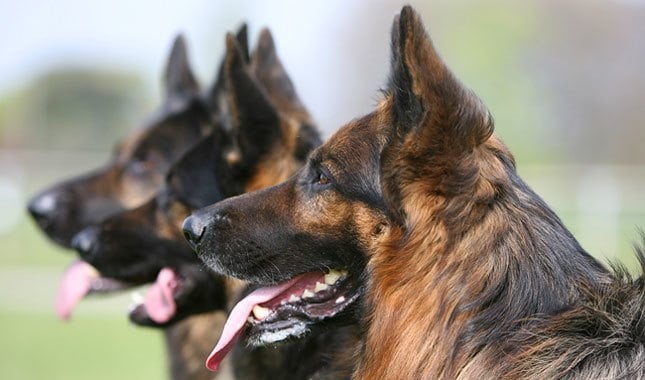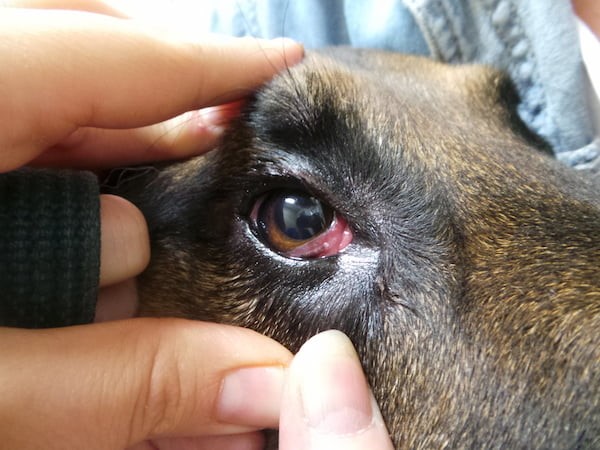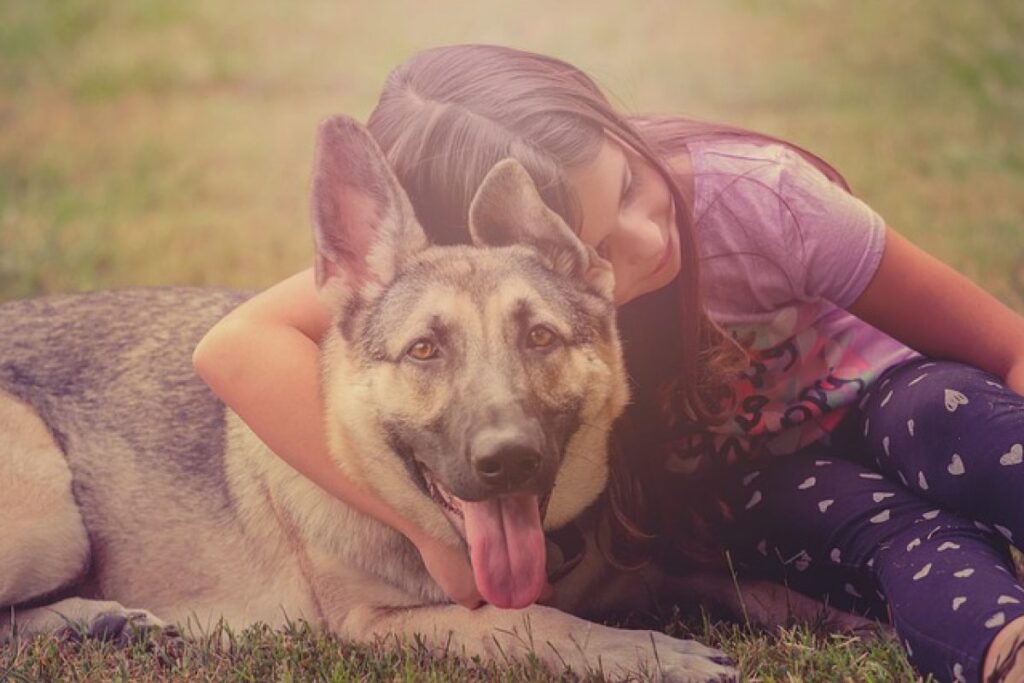Since you care so much about your dog, let’s talk about the most common health problems of German Shepherd dogs .
We know you want to take good care of him. Therefore, we will inform you about the health problems that we told you about the life of his pastor.
Most diseases and health conditions are genetic , meaning they are related to your pet’s breed. This does not mean that your dog has these problems, but rather that he is in more danger than other dogs.
To give you an idea of German Shepherd dogs, we will explain some of the most common health problems of German Shepherds. Of course, we don’t cover every issue related to your German Shepherd here, so always consult with a veterinarian if you notice any unusual signs or symptoms .
This guide and the health assessment schedule it contains help us and you be cautious about your pet’s health care needs. At the end of this article, we explain what you can do at home to keep your Shepherd healthy and stay active and happy at home.
You already know what to look for, and it is good for all of us to know that we are taking care of your pet as much as possible.
These are the most common German Shepherd health problems
German Shepherd Hind Leg Health Problems
Since their hind legs are tilted instead of up and down, your German Shepherd is less likely to suffer from back pain. If your dog doesn’t like going up or down stairs or feels lazy, please let us know so we can investigate back injuries.
Bleeding disorders
Health wise German Shepherds have a wider variety of inherited bleeding disorders called hemophilia than any other species. In the case of severe bleeding or until we undergo surgery, your pet may appear normal. We perform a diagnostic test for blood clotting time before surgery.
Swelling
Gastric dilation and volvulus, also known as bloat, usually occurs in dogs with a deep, narrow chest, including your German Shepherd. When the dog is bloated, the stomach twists and fills with gas. If left untreated, the disease can be rapidly fatal, sometimes within 30 minutes.
Your dog may lean back, or not come up at all (but nothing comes out), be fickle, have a pot belly, or lie down in a prayer position (front legs down, back down). If you notice symptoms, take your pet to an emergency hospital immediately. Preventive surgery allows pressing or piercing the abdomen at the time.
Bone-ache
Growing shepherds suffer from painful inflammation of the long bones of the legs (this condition is called eosinophilic pan osteitis or eo-pan). This situation is sought after the test. Eo-pan does not usually cause permanent damage, but requires pain medication.
Cancer
Cancer is the most common cause of death in older dogs, and your friend is especially prone to lymphomas and cancerous tumors of the kidneys and uterus. Call us if he suddenly becomes weak or pale, or if it appears on his skin, especially on his head or paws.
Degenerative myelopathy
This neurological disease is characterized by weakness of the hind legs and nerve function, and affects German Shepherds more than any other species. If your dog suffers from this disease, he will become weak and disabled in his hind legs and will end up suffering from incontinence and paralysis of the seat. Rehabilitation, exercise, and dietary supplements can help, but there is no cure.
Dental problems
Dental diseases are the most common chronic problem in companion animals, affecting 80% of dogs before the age of two, so it is important to review their dental health and find out about their evolution. It begins with tartar buildup on the teeth and increases infection of the gums and roots of the teeth.
Dental problems in German Shepherds

Clean your dog’s teeth regularly and make sure to keep them clean and white. It is also important to avoid certain types of toys and treats, such as chew paws, tennis balls, bones, and ice cubes, as they can be the cause of breakage and damage to dogs’ teeth.
Digestive disorders
There are many digestive conditions that can cause recurrent or chronic vomiting, diarrhea, or weight loss in Shepherds. To help prevent these problems, feed him a good quality feed that we recommend. Most importantly, avoid snacks and table food. Those high in fat (like pig ears), sodium, or artificial ingredients are bad for your friend’s digestion.
Dry eye in the German Shepherd

Dog Dry eye, also known as kerato conjunctivitis sicca or KCS, is a common German Shepherd health problem. The shepherd’s disease is called pannus. Symptoms include dark pigmentation of the cornea; A dull, dry shape instead of a bright, shiny eye; or squinting with thick discharge or stinging the eye. We conduct a tear test every year. If you have this disease, we suggest that you apply it for the rest of your life.
Hip dysplasia
You’ve probably heard of this hereditary disease that causes the hip joints to become irregular and lead to arthritis; It is common among German Shepherds. You may notice that he has lameness in his hind legs or difficulty lying down. We can treat arthritis to prevent discomfort and pain, the sooner the better.
Remember that overweight dogs develop arthritis two years earlier than those of normal weight, causing unnecessary pain and suffering. Surgery is sometimes a good option in severe and limiting cases of hip dysplasia.
Infections
German Shepherds are susceptible to bacterial and viral infections – all dogs can – such as parvovirus , rabies, and distemper. Most of these infections can be prevented by vaccination, which is given to your dog based on the diseases seen in our area, his age, and other factors. Your friend may also suffer from skin and ear infections, which can be uncomfortable and painful. Look for scratching, scratching, or picking at the skin or ears.
Joint disease

If your German Shepherd puppy is allowed to grow too quickly, the cartilage in his joints may not adhere properly to the bone. Surgery may be necessary to treat a problem called osteochondritis desiccants, so it’s best to avoid it by sticking to our recommended growth rate of no more than four pounds per week.
Do not overfeed, weigh your puppy every three to four weeks, do not give calcium supplements, and feed a larger breed puppy than an adult diet. Obesity is a serious health problem in dogs and is a serious disease that causes arthritis, certain types of cancer, back pain and heart disease.
Even if your friend is eager to feed him when he sees you with those heart eyes, you will love him to death with food and human feasts.
Parasites
All kinds of worms and bugs attack your dog’s body, inside and out. Everything from fleas to ticks to ear mites affects your skin and ears. Hookworms, roundworms, heartworms, and roundworms can enter your body in many ways:
Drinking dirty water, eating or stepping on feces, or becoming infected with mosquito bites. Some of these parasites can infect you or your family members and cause serious problems for everyone.
For your pet, these parasites can cause pain, discomfort, and sometimes even death, so it is important that we test for them regularly. We also recommend the preventative medication you need to stay healthy.
Perianal fistula
Shepherds suffer from this painful and chronic condition in which one or more areas around the anus are sore. Constipation, bleeding, constipation, fecal incontinence, signs of stress or obvious pain when the area is smiled, and malodorous secretions occur. This condition is difficult to treat and usually requires surgery to remove the problematic tissue.
Sterilization
The best thing you can do for your German shepherd is to keep him neutral (called spaying in females). In males, we surgically remove the testicles, and in females, the uterus and ovaries.
Neutering reduces the chance of certain types of cancer and eliminates the chance of your pet becoming pregnant or having unwanted puppies. Performing this surgery also gives us the opportunity to evaluate and treat some of the illnesses your shepherd develops while your pet is anesthetized.
If you want to know other articles similar to Most common health problems of German Shepherd dogs, you can visit the Behavior category.

